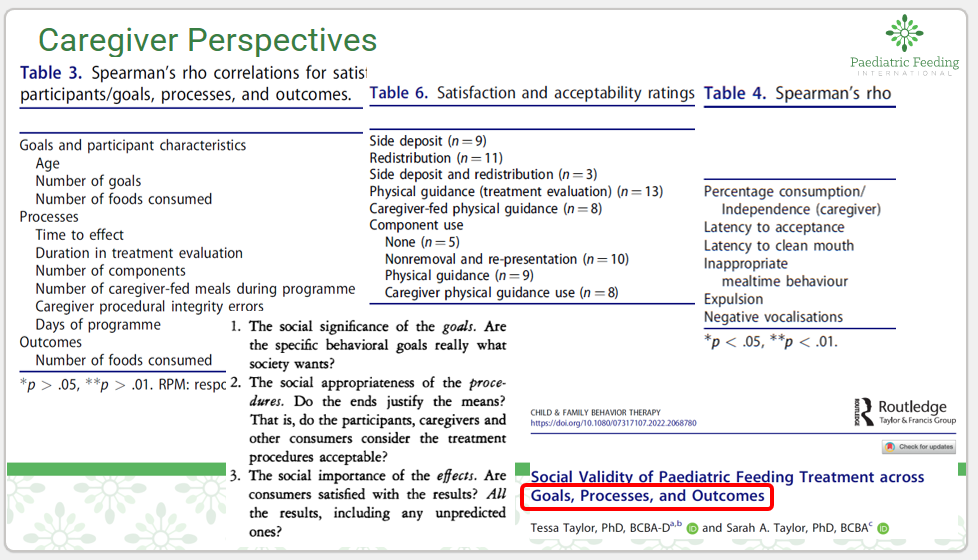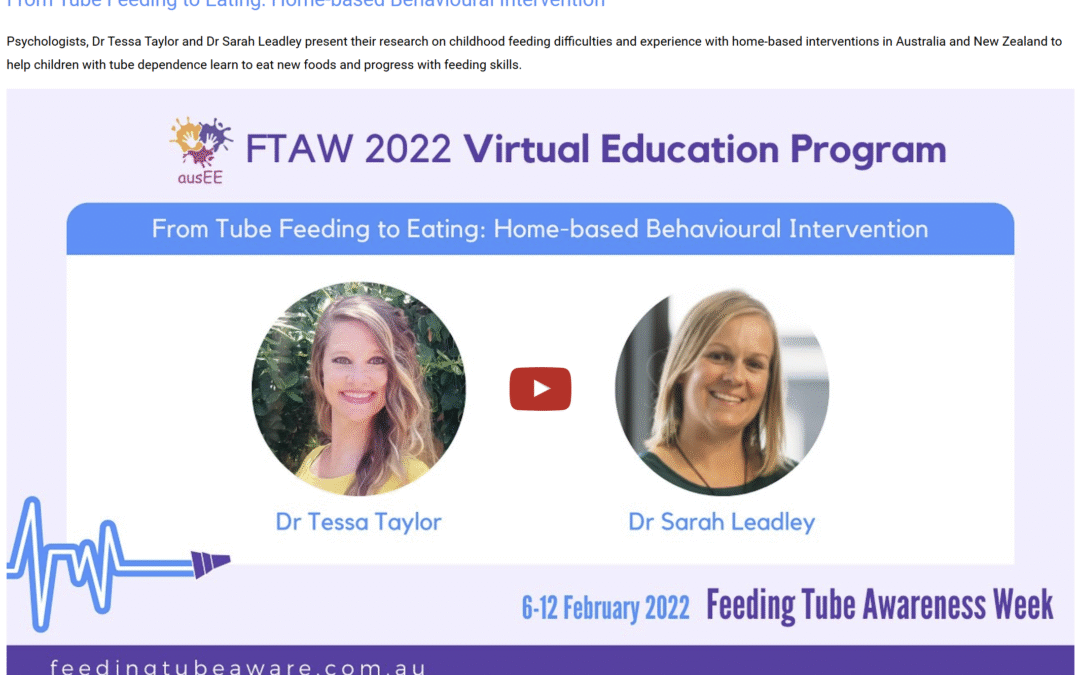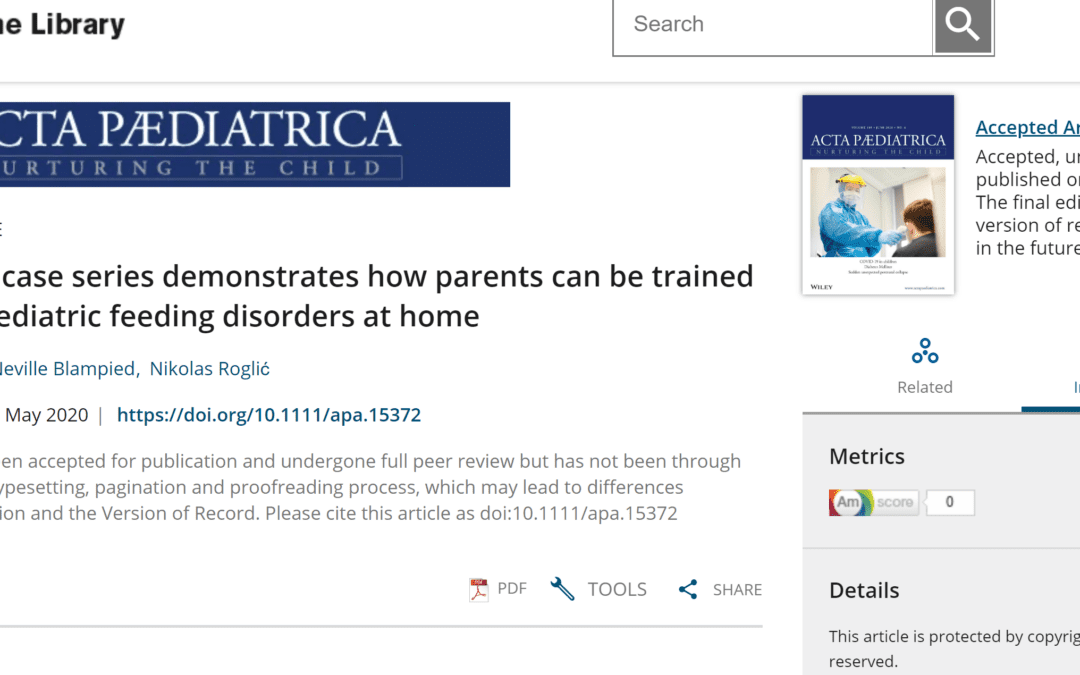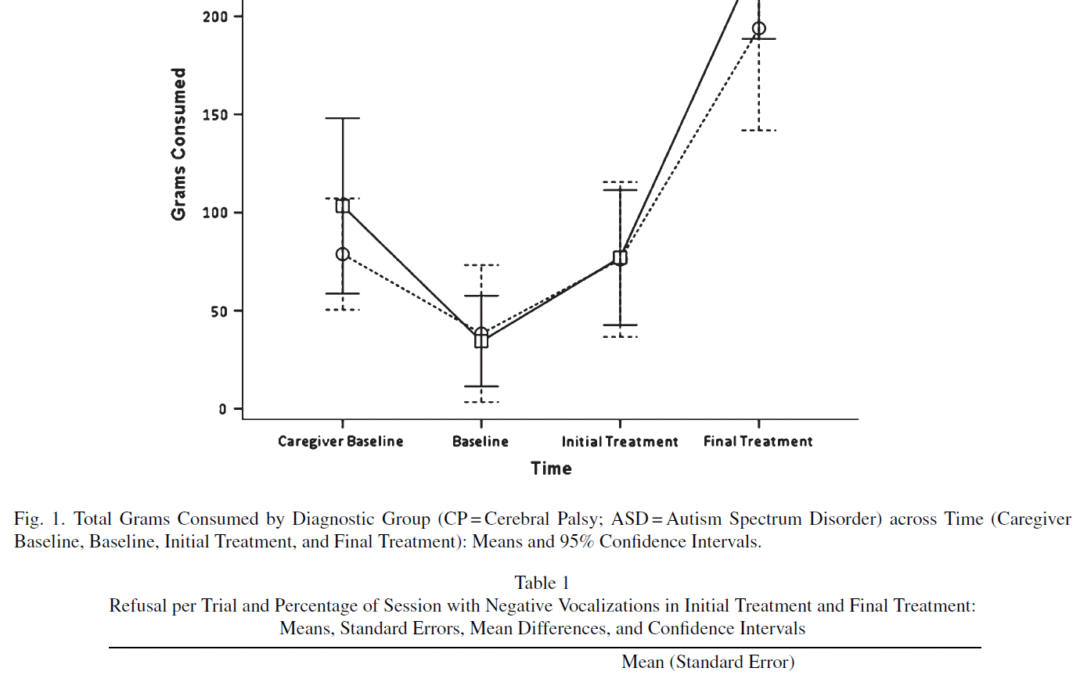
Jun 11, 2022 | Featured, Publications, Social Validity
Surprisingly, despite its importance and attention given in discussion currently in our field, supporting data and research are very much lacking. Data are needed in paediatric feeding to help accurately disseminate this highly important, effective, acceptable, and valued treatment, increasing access to treatment for families in need to improve their quality of life, and increasing opportunities for training/education for professionals. This is the first report to our knowledge to analyse social validity data comprehensively across variables such as participant characteristics, goals, treatment processes, treatment components, and outcomes. Ratings were high across the board (4.8 & 4.9 out of 5). Check out the results/graphs/tables! Future research could get caregiver input to design assessments, and use methods to analyse open-ended data (as in Anderson et al., 2021), in addition to the extensions to this work in Taylor & Taylor 2022b.

Feb 18, 2022 | Featured, Presentations
From Dr. Sarah Leadley Taylor in Auckland, NZ’s social validity assessment scale development research on caregiver perspectives: Ana & Temika’s Experience Anderson, R., Taylor, S., Taylor, T., & Virues-Ortega, J. (2021). Thematic and textual...

Jun 4, 2020 | Featured, Publications
Author perspectives: “This is the most excited I have ever been about an article. I love the colourful pictures of real food the kids actually ate to show real life and easily relatable proof of the results…In the graphs, you can still see each kid’s individual results instead of being lumped into the group and how big the change was for each kid. This was three years of my own hands-on personal direct close hard work with each kid and family in their homes, rather than a large hospital with lots of teams and supervising staff. It is an entirely different special experience, especially seeing the huge impact on the families’ lives (seeing the kids eat with their siblings and family, at restaurants, at school)…”

Jun 23, 2017 | Publications
The reason we published this article is a good thing is therapy works regardless of the original cause, diagnosis, disability level, or tube status. Unfortunately, parents may be inappropriately told things about their child’s abilities or therapy options without assessment or treatment data to support that. However, treatment is tailored to each child and still works if they have skill needs or don’t speak or understand. The thought should not really be ‘if’ they can learn it, but ‘when’ or what it will take. It may just take more time, although still we’re just talking about weeks/months—not years.




